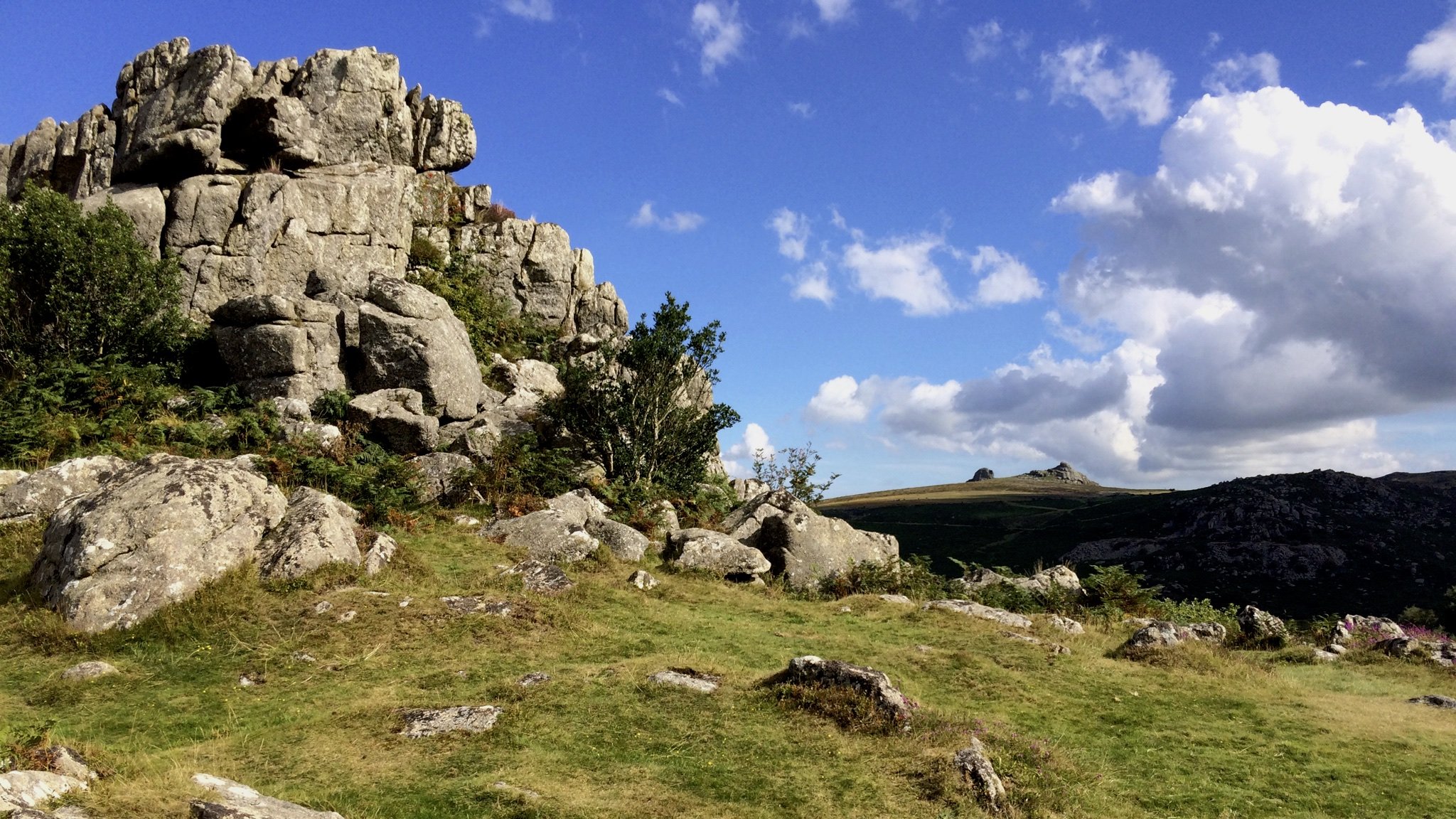
About Dartmoor
Dartmoor is a stunning landscape of towering granite tors, vast open moorland carpeted in grasses and beautiful heathers, lush wooded valleys, and torrent rivers.
At 368 square miles, it is southern England's largest and wildest area of open country.
An ancient land, evidence of human habitation here spans 10,000+ years making it one of the most important archaeological landscapes in Britain. Fascinating Neolithic, Bronze and Iron Age settlements and monuments cover Dartmoor in the shape of stone circles, standing stones, burial chambers, and hill forts. Sitting alongside them are medieval farm longhouses, field systems, tin-workings and the industrial era of granite quarries, clay works, ice works, and more.
Species-rich, you can find an enormous range of birds, flora and fauna here. Swathes of purple, pink and white heathers cover the ground in the summer. There are rare lichens and a carnivorous sundew bog-plant. The dunlin, golden plover, meadow pipit, buzzards, kestrels, stonechat, and skylark can all be seen as well as adders, lizards, damselfly, and impressive emperor moth caterpillars.
Every day is different on Dartmoor. Much of the landscape has remained unchanged for centuries and yet the seasons change, the colours are different everyday, the weather is unpredictable, and the quality of light unparalleled. Dartmoor offers an untamed wilderness experience as well as deep nourishment for the soul. We look forward to having you join us to share in the joy, challenge, fear, and passion of walking on Dartmoor!
Helpful Information
-
Dartmoor is a National Park and living, working landscape so users must abide by Dartmoor National Park Authority Byelaws.
The majority of England is privately owned and Dartmoor National Park is no exception.
-
Dartmoor National Park is here for everyone to enjoy and explore, no matter what your level of ability, needs or background.
You can find a list of accessible routes here.
-
Backpack camping is permitted on some of Dartmoor’s commons. The nature of the right to backpack camp has been subject to legal action over the last few years and will next be heard at the Supreme Court in October 2024.
Click here for the Dartmoor National Park Camping Map
-
There are some brilliant places to stay all over Dartmoor. Here are some of our favourites, organised by type.
Camping, Yurts, Farms
Cottages
B&B’s / Air B&B’s / Private Houses
Pubs With Accommodation
Hotels
-
Dartmoor National Park offers a range of volunteering opportunities.
-
If you see livestock injured or in distress you can contact the Dartmoor Livestock Protection Society (DLPS).
DLPS was formed after the severe winter of 1962-63 to help ponies, sheep and cattle in distress on Dartmoor and to campaign to raise standards of animal care.
-
Dial 999, Ask for Police, then ask for Dartmoor Search and Rescue.
Be prepared for no phone signal by pre-subscribing for Emergency SMS service.
-
Dartmoor is an upland environment in Devon with two coastlines nearby on the north and south coasts so weather can be unpredictable, change swiftly, and forecasts are not always reliable.
However you can check the weather here:
Dartcam - a live webcam at Postbridge
BBC Weather - forecast at Princetown
Met Office - forecast at Haytor
-
Please abide by the countryside code when visiting Dartmoor.
-
There are three live firing areas used by the MOD across Dartmoor. Okehampton, Merrivale and Willsworthy, account for 9,187 hectares (22,664) acres of the total training area and these are used for live firing on average up to 120 days per year, although usage varies between ranges. At all other times the public has access over the range danger areas even though other forms of military training may be taking place.
-
We recommend that people on all of our walks bring the following:
Walking boots/shoes - Ideally with sturdy grips on the soles. Gaiters or wellies are recommended for wet ground.
Warm layers - Dartmoor is several degrees colder than lowland environments so thermals, hats and gloves can be important
Waterproof jacket and trousers - Bring them whatever the forecast!
Walking poles - If you have them
Sunscreen
Snacks and drinks
Personal first aid kit
Mobile phone for emergencies - We recommend that you sign up to ‘Emergency SMS’ before a Dartmoor walk www.emergencysms.net




